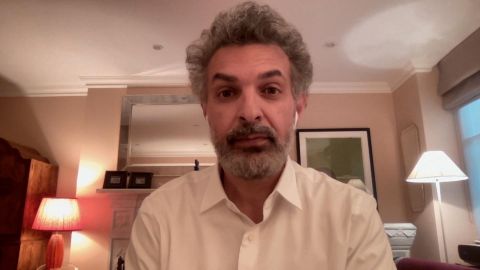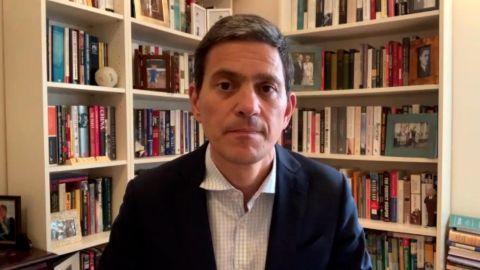Read Transcript EXPAND
DAVID MILIBAND, PRESIDENT, INTERNATIONAL RESCUE COMMITTEE: Look, there are three humanitarian crises going on inside Afghanistan at the moment. The first is that there are 18 million people dependent on humanitarian aid for survival, really. They — it’s a very poor country, as you know, 80 percent of the country facing drought, high levels of COVID. So you have got a basic humanitarian issue. You have then got a half-a- million people joining the two-and-a-half million people who’ve been displaced by fighting, recently, half-a-million people displaced by fighting. They’re homeless. They’re in Kabul or they’re in Kandahar, they’re elsewhere. Then, third part of the humanitarian crisis, or the third crisis, is precisely the one that you refer to, which is that people who’ve had promises made to them by U.S., U.K., others want to have those promises met. They’re filling in forms. Some of them have filled in the form. Some of them have got paperwork. But you have seen the scenes outside Kabul Airport, as well as I have. And the lack of preparation is costing people dear. And these are people who have good reason to believe, they think, that their lives are in danger. They’re very afraid, and they want to have promises met. So I think that all three of those humanitarian crises need to be addressed. And they need to be addressed with a high degree of urgency.
CHRISTIANE AMANPOUR: Do you think, knowing what you know about refugees and desperation all over the world, not to mention what you have just outlined across Afghanistan — the Biden administration has given a fixed date, August 31. That’s in about a week, where they say their airlift and their presence will be ended. Is it even remotely possible, in your view, and given the historical past, to remove all these tens and hundreds of thousands of people who are desperate in a week?
MILIBAND: Well, let’s understand, first of all, what the pledge is and then whether or not it can be met. The pledge is for people to enter the process. And the visa processing system that the United States has, the so-called Priority 2 visas, alongside the Special Immigrant Visas that are issued to people who worked directly for the U.S., it’s going to take a couple of years for that to be filled through. That’s why you’re hearing about third countries. That’s why you’re hearing about Guam, the U.S. air base. So, first of all, let’s be clear that three — hundreds of thousands of people — Canada’s pledged 20,000. The U.K., I was very sad to see pledging 5,000 a year or 4,000 a year, which is really nowhere near the scale of the issue. These are people who are going to have a lot of paperwork facing them. And that needs to be expedited. There’s no way you can keep people waiting for two years, never mind for the two weeks that you’re referring to. Then, secondly, what can be done? Obviously, the deadline is contributing to the sense of panic. And, as you say, 10, 12 days away, it’s very hard to see how that’s going to be achieved.
About This Episode EXPAND
Saad Mohseni; David Miliband; Barry Jenkins; Nanfu Wang
LEARN MORE



